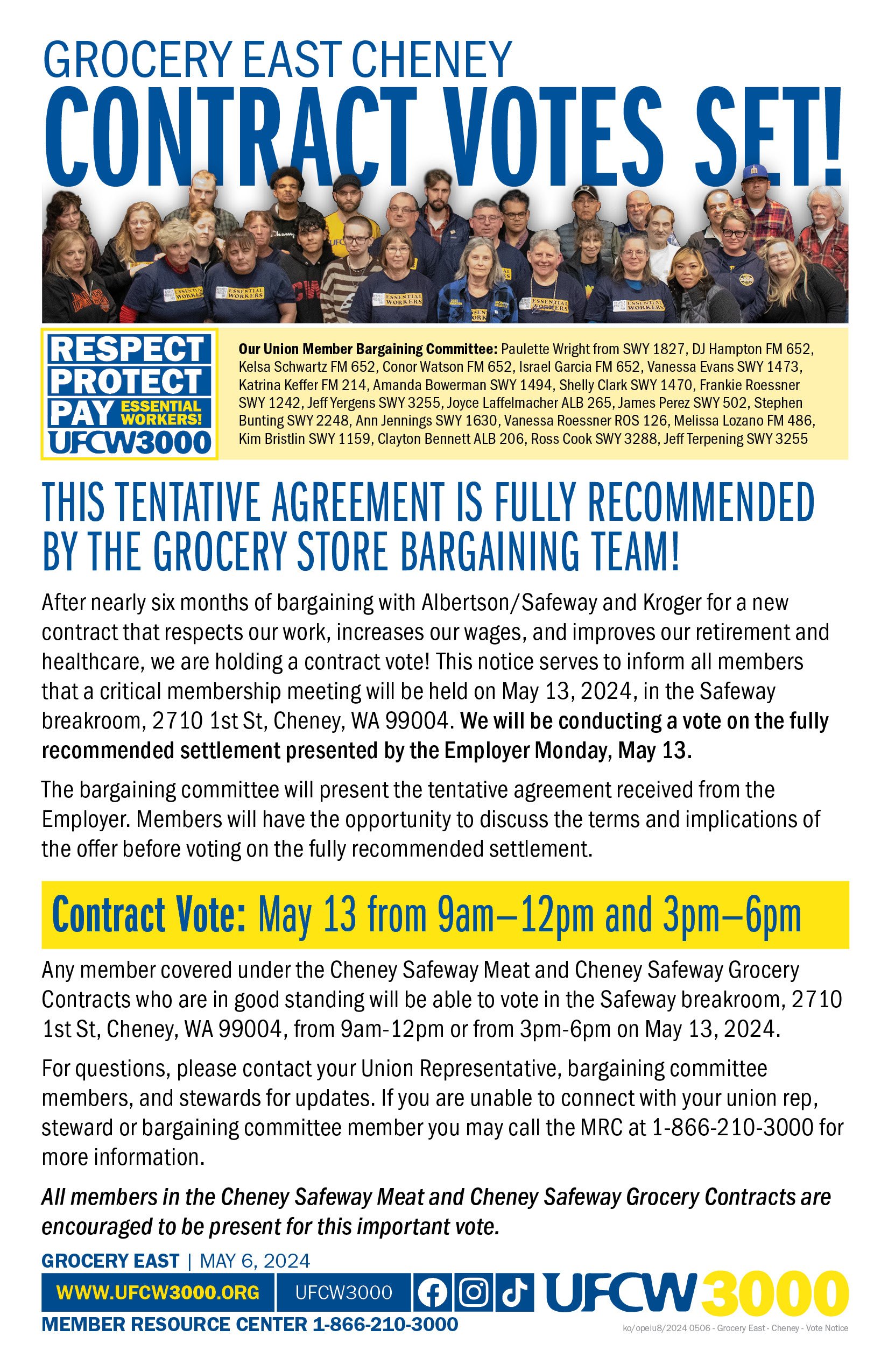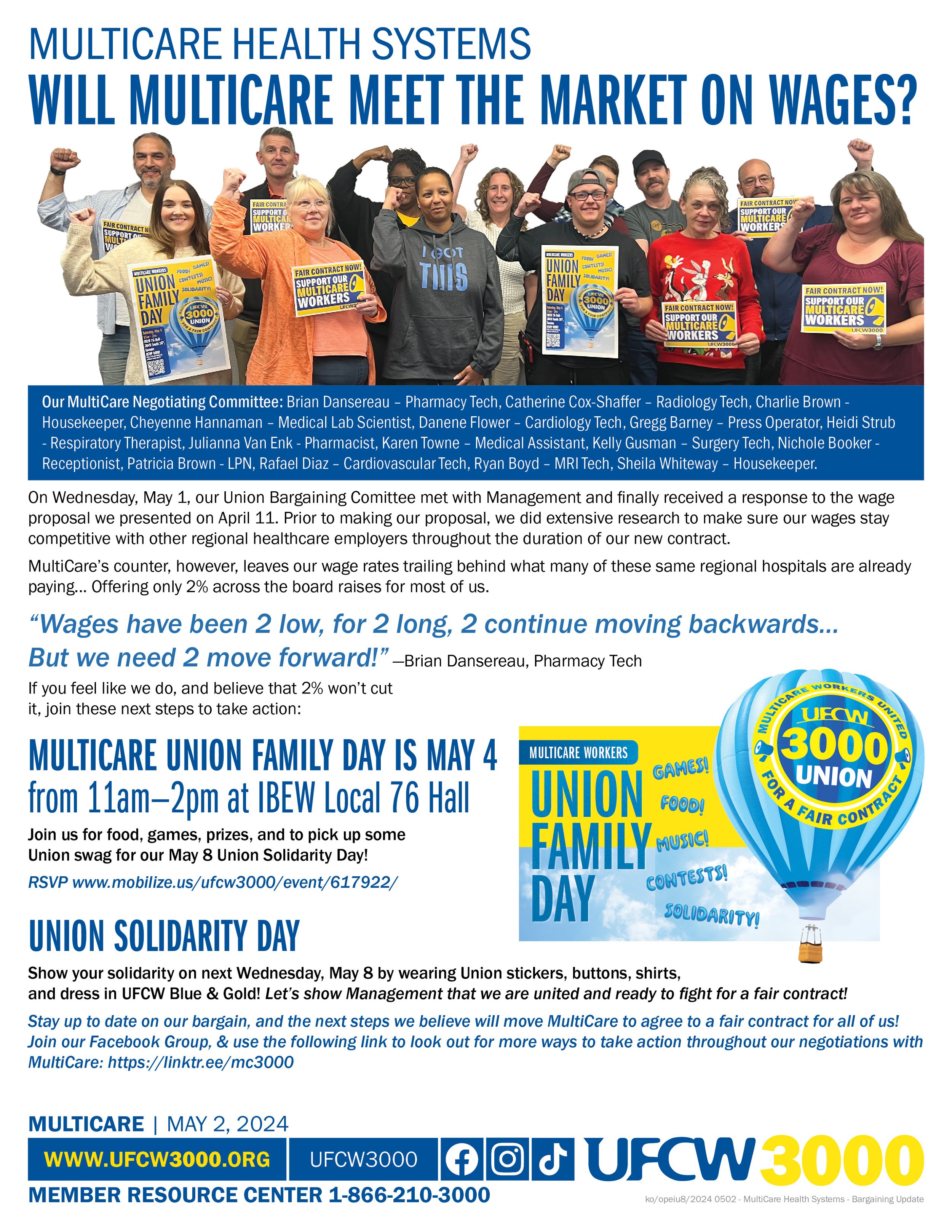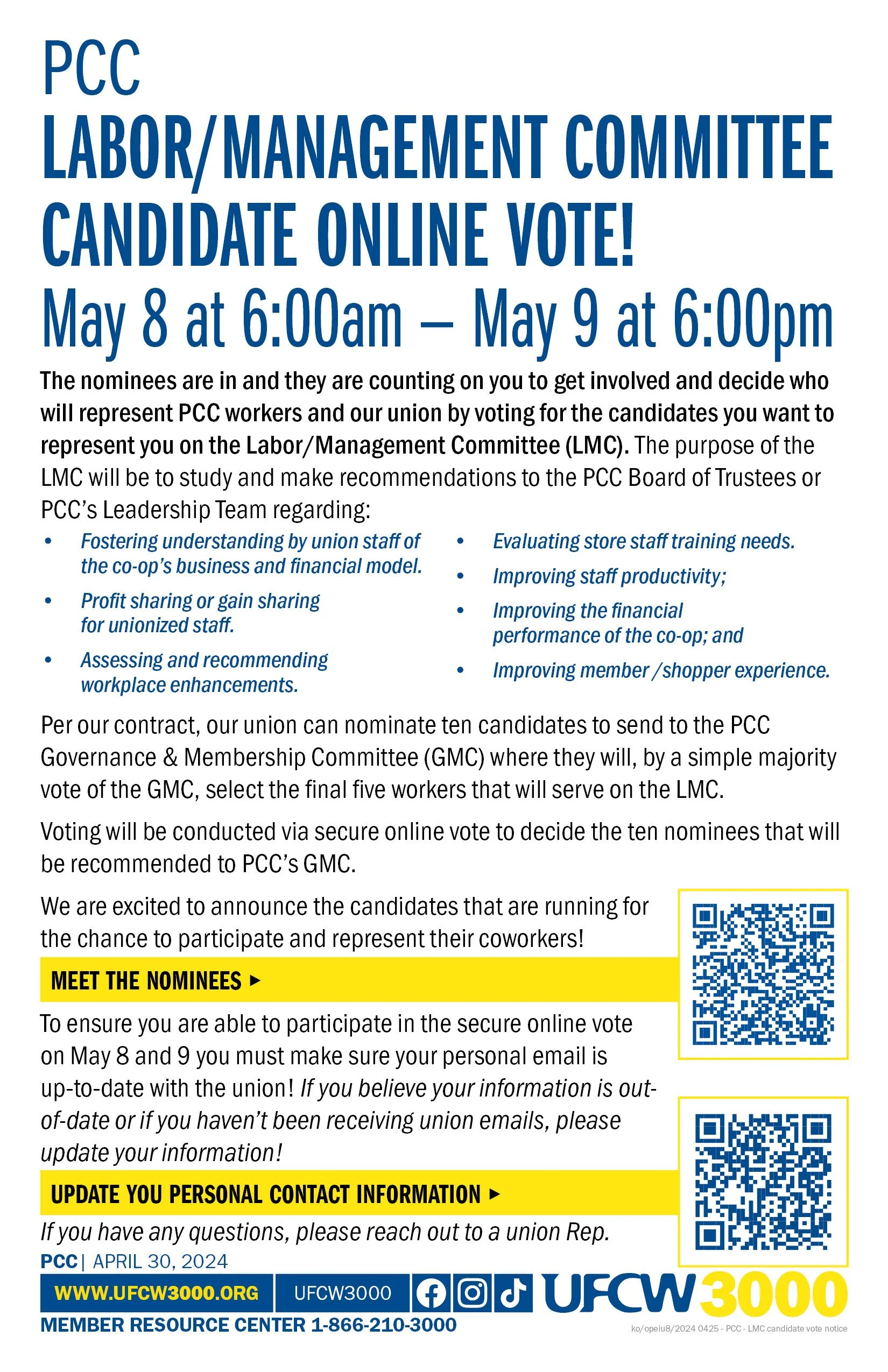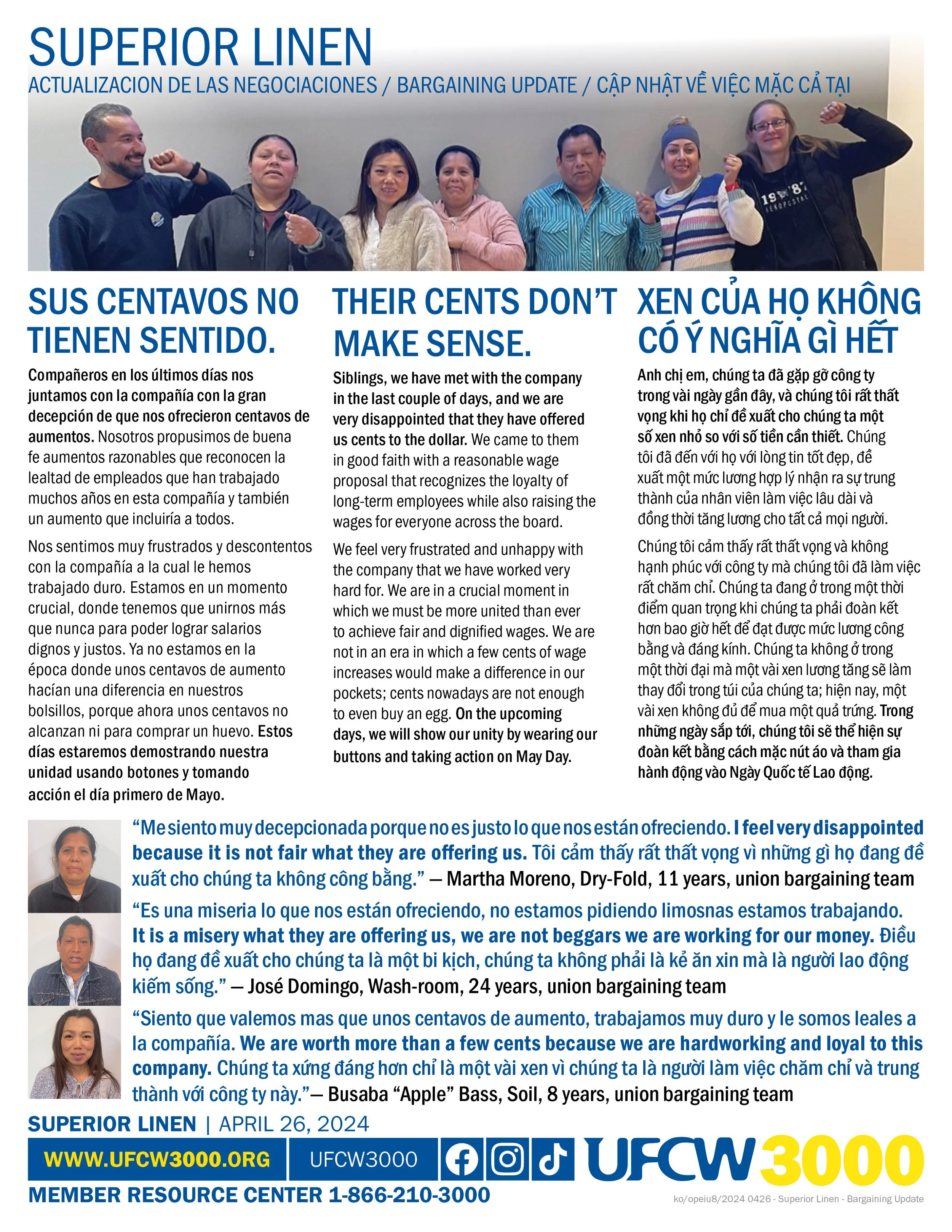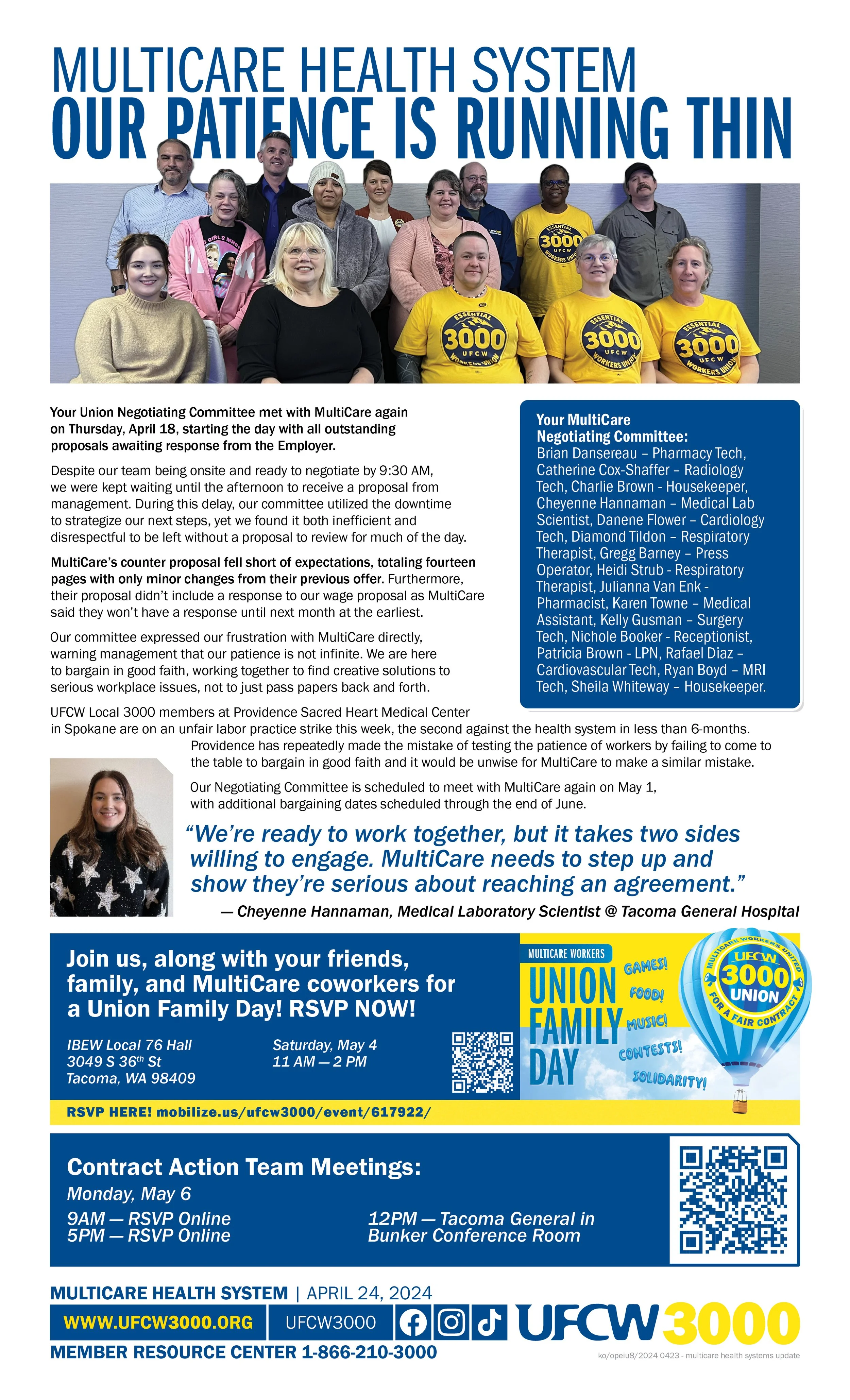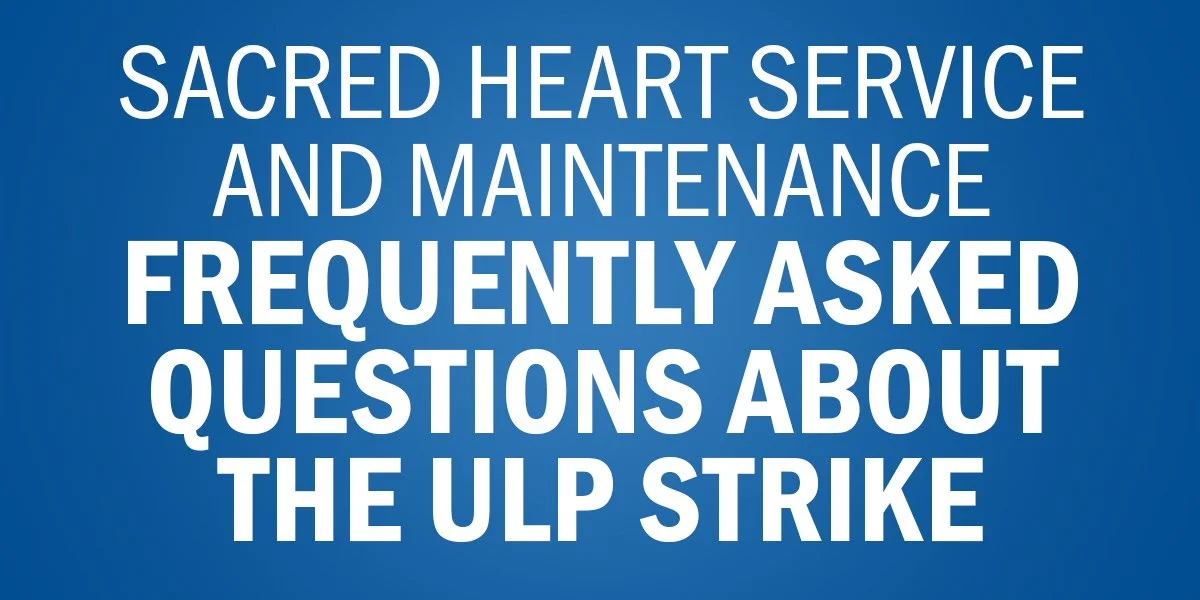Health care stories from the front lines
/UFCW 21 Members on the Front Lines of the COVID-19 Outbreak in Western Washington
Members of our union have been providing quality care to COVID-19 patients since the first case arrived in Washington. We are asking our fellow union members to stay strong, asking the public to support public health guidelines like staying home, and asking our employers and the government for safety and support. Here are a few of our stories.
Health care workers need safety equipment to protect ourselves on the front lines of the COVID19 outbreak. It's time to get this equipment into our hands. Send a message to congress here.
Do you work at or own a construction company, medical or dental office, or other organization with an inventory of potentially life-saving personal protective equipment? Donate these much needed supplies here.
Stories collected by UFCW 21 member Wil Peterson
“If we remember our training, we’ll get through this.”
Kimball Conlon, RN, Everett
Kimball Conlon, a registered nurse in Providence Regional Medical Center-Everett's Emergency Department, was literally a first responder when the country's first coronavirus case was identified in Washington. As part of the Biological Evaluation Safety Team that faced a mysterious, rapidly unfolding crisis in January, she quickly learned the importance of remaining cool under unimaginable pressure.
Her primary goal is ensuring that she protects her patients and colleagues. "If we remember our training, we’ll get through this," she said. "I will do everything I can to prevent the spread of transmission.”
Union intervention, she added, has been a valuable resource. "The Union is sort of being the vigilant ones for the membership – making sure that hospitals and grocery stores are doing everything they need to do to protect workers," Kimball said. "They've been good at disseminating information and expressing support for members."
"I know that people are frustrated by what they see as a lack of support from the hospital," Kimball said of hospital employers. "But they can only do what they can do with the information that's given from our government." Fortunately, she said, the Centers for Disease Control is helping matters by releasing new details about the coronavirus. This information, which repeatedly recommends precautionary measures, provides guidelines that Kimball strongly endorses.
"I think that if people who feel sick can stay home, stay home. Use good hand sanitation," Kimball said. "Don’t add to confusion by spreading misinformation. I think we need to rely on what we know."
Despite current fears and concerns generated by the pandemic, Kimball remains cautiously optimistic about lessons that can be learned for dealing with future crises. "We need to allow ourselves grace, and the powers that be grace," she said. "Let's try to get through this, and then say, 'What can we do better?'"
“All we can do is our best.”
Jacob Kostecka, RN, Olympia
Dealing with the coronavirus is a new experience for UFCW 21 member Jacob Kostecka, too, a registered nurse at Providence St. Peter Hospital in Olympia. He said his county – Thurston – reported its first case earlier this week. “There is no treatment for this, other than supportive care. So if people come in, all we can do is our best. In some ways, we just have to accept that it’s here and live our lives.”
But prior to the first case, social panic was already evident at the hospital. Masks and toilet paper are in short supply, he said, in some cases because of theft. Remaining items are now locked up. “It’s devastating to us because we’re in desperate need of them. It’s a challenge for care providers to get what we need,” Jacob said. “The shortage will only get worse as the pandemic continues.” Further complicating matters, Jacob added, is receiving confusing and conflicting information from the Federal Government about how best to deal with the pandemic.
Another challenge is trying to provide quality care while dealing with inadequate staffing, said Jacob, who compared the crisis to a slow-moving train wreck. “We’re all gonna get hit. This is not going away.”
Jacob said he believes the Union’s role is to push for meetings with Gov. Jay Inslee and to ask Providence to cover any healthcare insurance and pay shortages of healthcare workers who lose wages because of the crisis. “The Union and the administration need to work cooperatively together for the best possible outcome for our staff and our patients,” he said. “And I believe we can do that.”
“One thing we, as professionals, can do is care for patients under any circumstances – that’s just what we do.”
Matthew Skews, RN, Everett
As a registered nurse who works in Interventional Radiology Services at Providence Regional Medical Center-Everett, Matthew Skews has limited contact with patients. But he’s well aware of the challenges faced by other nurses in higher-volume areas during the coronavirus pandemic.
Staffing is an issue, Matthew said, which is increasing as the nurse-patient ratio escalates. “One thing we, as professionals, can do is care for patients under any circumstances – that’s just what we do. But don’t make us do it short-staffed,” said Matthew, who referenced state legislation designed to protect nurses from experiencing fatigue. “That’s where we need the help.” Masks, gloves and other supplies necessary to help protect nurses and patient also are in short supply, he added. "We’re not sure if what’s there is enough."
The cumulative effect of these shortages creates both frustration and exhaustion for Matthew. “Frequently we’re finding ourselves trying to keep up and catch up with what’s happening,” he said.




